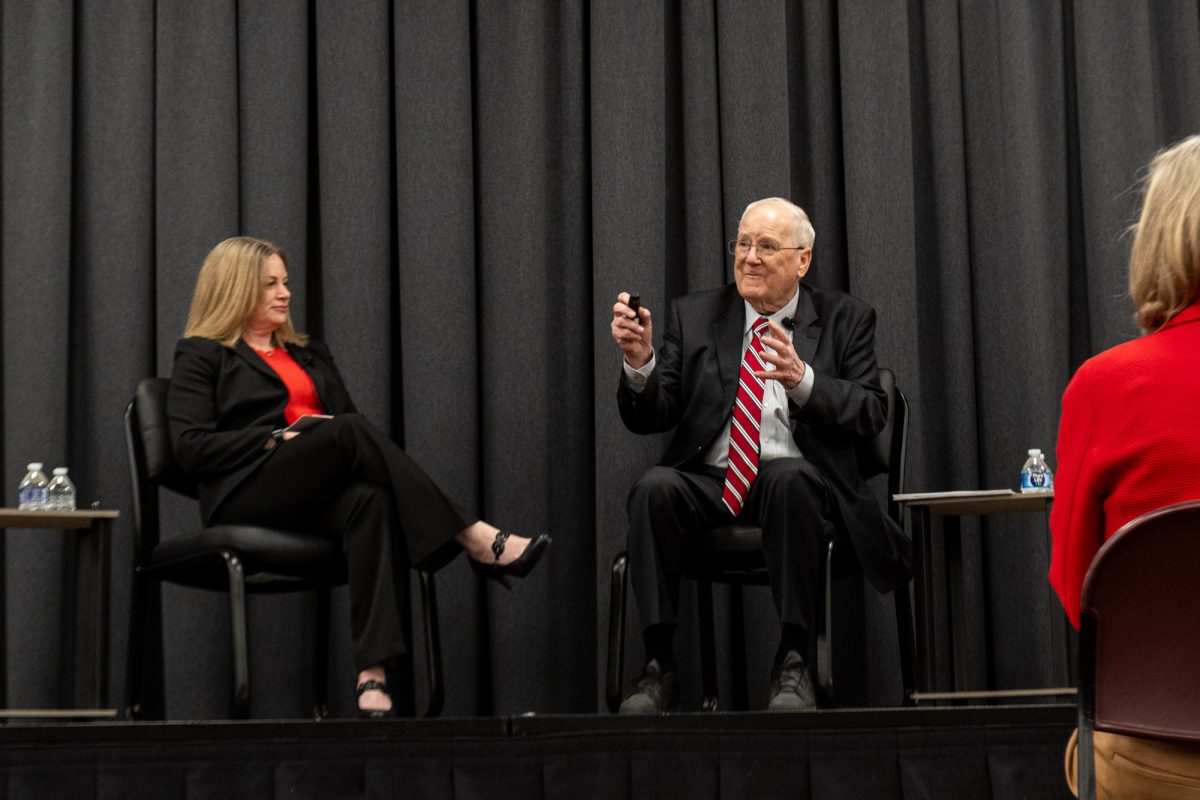Iowa Attorney General Tom Miller voices support for SOFA Act amid criticisms
August 31, 2018
As opioid abuse has become a national epidemic, illicit drug manufacturers have become more creative.
More people are dying every year from new variations on the prescription drug fentanyl, known as fentanyl analogues.
In response, Iowa Attorney General Tom Miller has officially offered his support for the Stopping Overdoses of Fentanyl Analogues Act (SOFA Act), but Iowa experts are doubting the bill’s potential effectiveness.
Miller signed a bipartisan letter On Aug. 23 with the attorneys general from every U.S. state, Puerto Rico and Washington D.C, urging Congress to pass the SOFA Act. The SOFA Act will update the federal government’s drug scheduling system to make known fentanyl analogues illegal, as soon as they are produced.
Dr. Thomas Benzoni, an emergency room physician and assistant professor at Des Moines University, believes while the bill is well intentioned, it still leaves law enforcement playing catch up with new variations of the drugs.
“It’s a good idea, but it reminds me we’re fighting yesterday’s war,” Benzoni said. “If you make them illegal as soon as you manufacture them, you’re still playing Whac-A-Mole with them.”
Fentanyl analogues are very similar to fentanyl in their chemical makeup but have slight alterations to avoid being classified as a Schedule 1 drug. These synthetic drugs often include other illicit substances, such as cocaine or heroin, to make an even more potent new chemical.
The Drug Enforcement Administration (DEA) schedules substances based on their potential for abuse, dependency and medical use. There are five categories, with Schedule 1 having the highest potential for abuse as well as psychological and physical dependence and no medical uses. Schedule 5 substances have low potential for abuse and are used commonly in medicine.
Fentanyl is currently a Schedule 2 drug because of its medical uses.
A large reason the government has had trouble keeping up with drug dealers’ fentanyl innovations is because of the many ways the chemical can be altered, Benzoni said.
The Iowa Attorney General’s office agrees the DEA has had to play catch up with fentanyl analogues but believes they have been able to get ahead of drug dealers and manufacturers with similar regulations.
In February, 2017, the DEA “emergency scheduled” all illicit fentanyls as Schedule 1.
“By proactively scheduling the whole class of illicit fentanyl substances simultaneously, federal agents and prosecutors can take swift and necessary action against those bringing this poison into our communities,” said Robert Patterson, former acting DEA administrator, in a statement at the time.
ISU researcher and Associate Professor of Sociology, David Peters will soon begin a research project on the opioid epidemic’s relation to rural communities.
Peters is critical of the federal government’s past approaches to drug legislation. He specifically pointed to the U.S. war on drugs when speaking on the SOFA Act.
“The SOFA law will help put people in jail,” Peters said. “It will help prosecutors and law enforcement, but since 1988, we’ve had very stiff penalties and all these harsh prison terms for relatively minor drugs; not as potent or deadly as fentanyl. It hasn’t stopped marijuana, cocaine or heroin.
“My professional opinion is that it’s not going to do a whole lot to reduce the number of deaths or social impact on these communities.”
A representative from Iowa Attorney General Tom Miller’s office, however, believes empowering law enforcement will lead to saving lives.
“It appears to us that the temporary power is already saving lives, but we need it written into federal law as a permanent solution,” said Lynn Hicks, communications director for the Office of the Attorney General, in an interview with the Iowa State Daily.
The Attorney General’s office is confident in its approach to tackling the opioid crisis.
“Under Miller, the Iowa Attorney General’s Office has embarked on a multipronged effort to address opioid abuse in Iowa, including educating citizens and medical professionals,” according to a news release from the Office of the Attorney General. “The office is also playing a major role in a multistate investigation into the manufacturers and distributors of prescription opioid drugs as part of a widespread probe into the nation’s opioid epidemic.”
The SOFA Act was introduced in the U.S. Senate on July 13, 2017, by Sen. Ron Johnson (R-WI) and was referred to the Committee on the Judiciary that day.
It was introduced by Sen. James Sensenbrenner, Jr. (R-WI) in the U.S. House of Representatives on Feb. 5. 2018, and was referred to the Subcommittee on Health on Feb. 9. 2018. The bill currently has four cosponsors in the House.






